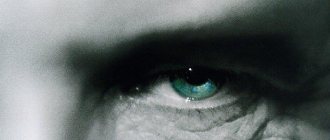Mental personality disorders are a global problem of our time. Under stress, every fifth person develops mental disorders. They have many different characteristics.
What is a mental (mental) disorder?
Modern psychiatry considers a process pathological if there is a clear deviation from the established norm, which negatively affects the patient’s condition.
Mental personality disorder in simple words is a mental illness associated with a violation of intellectual and emotional development, which limits a person’s abilities in social interaction and complicates the process of his adaptation in society. The ability to adequately perceive reality and control one’s behavior also noticeably decreases.
Treatment
Many people do not seek medical help because they are not aware of their problem. It is impossible to independently recognize mild forms of diseases with a wide range of abnormalities. They are often disguised as fatigue, laziness, emotional burnout, as well as various symptoms that make everyday life difficult.
For full social adaptation and improving the quality of life, the help of specialists is necessary. Neurologists, psychiatrists and psychotherapists treat pathologies. Sometimes psychotherapy and auto-training methods are sufficient to correct the condition.
In severe cases, especially during crises, the patient requires hospitalization and drug therapy. Drugs are selected strictly individually. The prognosis is more favorable for those who undergo treatment.
MR manifests itself differently in people due to the variety of mental characteristics. It all depends on the type and severity of functional disorders. A person may be completely independent or require constant support.
Many disorders can be successfully corrected. By taking care of mental health, you can again experience pleasure in life and feel joy.
Symptoms
Mental personality disorders are accompanied by an antisocial or inadequate attitude towards everything around them, which causes difficulties in relationships and communication with other people. The patients themselves do not see the problem, for them this behavior is considered the norm, so they themselves never seek medical help. You can recognize the symptoms of personality disorders by the following symptoms:
- the patient is constantly dissatisfied with his life;
- suffers from constant increased anxiety;
- constantly in a bad mood;
- there are periods of loss of reality;
- difficulty in relationships;
- feeling of devastation;
- avoidance of social contacts
- inability to cope with negative emotions;
- increased and unreasonable aggressiveness.
People suffering from this mental disorder are unable to control their impulsiveness and often become addicted to gambling, drinking alcohol or drugs, which only worsens the situation. There are strange behavior towards oneself and others, such as self-mutilation or suicide attempts.
Mental exhaustion: what is it and how to deal with it
Has the pre-holiday fever sucked all the juice out? It's time to take a breath.
Mental exhaustion is a state of emotional fatigue resulting from accumulated stress in your personal or professional life. Emotional exhaustion is one of the signs of burnout.
People experiencing mental exhaustion often feel like they have no power or control over what happens in their lives. They feel like they have become hostages of the situation. Lack of energy, trouble sleeping, and decreased motivation can make it difficult to overcome burnout. Over time, this chronic stress condition can cause irreparable harm to your health.
How do you know if you are mentally exhausted? We have collected the main symptoms.
Symptoms of mental exhaustion:
- you get irritated quickly. Any little thing can make you angry, and the world appears in condensed dark colors.
- you are late everywhere. The feeling that time is slipping through your fingers and you are sorely lacking it leads to the fact that you are constantly in a hurry, but do not have time to get anywhere.
- you have problems with motivation. Tasks that previously caused delight and a desire to solve as quickly as possible now seem like a heavy burden that complicates an already difficult life.
- you suffer from insomnia. Your future seems vague to you, and in the present you see only problems and obstacles, which leads to difficulties falling asleep.
- you are avoiding responsibility. Previously, this was not a problem for you, but now you do not want to be responsible for your decisions and words.
- you cry for no reason. Sometimes you just want to shed a tear and thus relieve the burden that is pressing inside.
Social integration
The main need of mentally disabled people, with the exception of medical care, is the need for a normal life: the realization of the right to rehabilitation, education, employment, recreation, and, a little less often, official employment. In most cases, such people need support in many life situations or “inpatient replacement” services: cohabitation, psychological, household, medical assistance, support during employment throughout their entire life journey.
Due to the fact that mental disability is in most cases a repulsive pathology, people with mental illness are isolated from society and locked in an apartment or a psychiatric hospital. Until recently, the rehabilitation services offered for this group of disabled people in Russia were limited only to psychoneurological dispensaries and psychiatric hospitals, in which not only caregivers, but also ordinary citizens do not trust them. The main reason for the lack of trust is the fear that the ward will be deprived of legal capacity or “pumped up” with drugs to the point of being a “vegetable.” Social service centers provide services, the quality of which respondents also doubt.
Reform of psychoneurological boarding schools
Still from Milos Forman's film One Flew Over the Cuckoo's Nest. Photo from thr.ru
The topic of PNI began to be enthusiastically discussed in the media due, first of all, to the compassionate attitude of volunteers towards the problems of people with mental disorders. The public began to talk about the fact that the structure of boarding schools, which in its essence resembles a prison, contradicts the Convention on the Rights of Persons with Disabilities.
Journalists supported: people with mental disabilities, according to the document adopted by our country, have the right to freedom of movement and self-expression.
After a series of publications about ill-treatment of residents of PNI, the Ministry of Labor and Social Development of the Russian Federation began to develop a plan for reforming the system. They promised to present the project by the end of the year, but it is already known that the reform is aimed at deinstitutionalizing boarding schools.
However, this does not mean the disappearance of institutions for the mentally disabled. This means that those who can live on their own will go to families or, if possible, to their own apartments, while for the rest there will be various forms of assisted living (for example, with employment or day employment).
On social networks, in response to messages about the PNI reform, fears arose that crazy people would take to the Russian streets en masse. Psychoneurological boarding schools, in the understanding of many, are places where people with mental disorders who are capable of aggressive attacks are imprisoned. While in fact, patients dangerous to society mainly live in hospitals, that is, special medical institutions.
And in PNI - social institutions - they accept people with disabilities that confirm that the disease is an obstacle to normal functioning in society (with an emphasis on the patient’s condition, and not a danger to society).
Instructions on medical indications and contraindications for admission to boarding homes (approved by the Ministry of Health of the USSR on September 5, 1978 N 06-14/12) Persons with mental retardation to the extent of severe debility, imbecility and idiocy, as well as persons suffering from protracted forms of mental illness, the condition of which is characterized by the absence of acute psychotic symptoms, the presence of dementia or gross manifestations of a mental defect... Contraindications to referral to a psychoneurological boarding school are acute and subacute stages of mental illness and states of exacerbation of chronic mental illness; mental illnesses characterized by severe psychotic symptoms, gross disturbances of desire and behavioral disorders that are dangerous for the patient himself and others (sexual perversions, hypersexuality, sadistic tendencies, a tendency to aggression, escape, arson, dromomania, refusal to eat, suicidal tendencies, etc. .).
Double standards
Still from the film "Rain Man" by Barry Levinson. Photo from peopletalk.ru
According to WHO estimates, every fifth person on the planet actually has mental disorders.
That is, given that during rush hour there are on average 130 people in one metro car in Moscow, 26 passengers in one car have a mental disorder.
For many, it is undiagnosed or unstable, while others, on the contrary, know about their problem and take medications. And all this seems normal to us, while we perceive mental disability as something out of the ordinary.
Perhaps this is so, only, as a rule, we are not talking about an extreme degree of disease, but about an extreme degree of social vulnerability. After all, most often people register a disability and write requests for placement in a PNI either by people who do not have the help they need to live in a society with their own characteristics, or by relatives of such people who are tired of caring for a disabled loved one.
“The problem of boarding schools will not exist if parents take their children, and children take their parents, whom they handed over to the PNI. It's not a war. As for the danger of people with mental disabilities to society, it seems to me extremely exaggerated. In our country, drunk drivers are much more dangerous,” says psychiatrist Alexey Loginov, former chief physician of the St. Petersburg PNI.
True, according to the expert, only 5-6% of all boarding school residents can actually live independently. The main reason is the loss of numeracy, reading, etc. skills by people with mental disabilities. It is quite difficult for them to learn again due to limited cognitive functions.
“I remember the completely absurd demand of my former boss, the deputy director for social work, to create lists of “independent living” according to the order - so many people from each building,” says Alla Mamontova. – It is impossible to call this anything other than absurd, because only a few among the clients of mental health care centers are truly (without guaranteed negative consequences) capable of independent living, and it is only possible to “increase” the rehabilitation potential of a mental disabled person of groups I-II from average to high. wizards."
However, mentally disabled people living in PNI, subject to observation by a psychiatrist and receiving supportive treatment, pose no greater threat to society than mentally healthy people, the psychologist emphasizes.
In addition, according to the abovementioned provision from 1978 (yes, it is indeed still invoked), people with mental disabilities who are aggressive and dangerous to society cannot live in boarding schools.
“Of course, even “core” PNI clients are theoretically capable of aggression (verbal and physical) and crimes, but people who do not have a psychiatric diagnosis are also potentially capable of this,” says Alla Mamontova.









